Picture this: You’re standing in front of the Great Pyramid of Giza, marveling at one of the Seven Wonders of the Ancient World. The sun sets behind the colossal structure, painting the sky in hues of orange and gold. As you breathe in the warm desert air, you can’t help but wonder: Is Egypt safe to visit?
For many travelers, Egypt is a dream destination — a land rich with history, culture, and natural beauty. But safety concerns often cast a shadow over those travel dreams. If you’re considering visiting Egypt in 2024, it’s normal to have questions about safety, especially in light of the political and social changes the region has experienced. This guide will break down everything you need to know to travel confidently, safely, and responsibly.
Table of Contents
Understanding the Current Safety Situation in Egypt
Egypt is a country where the ancient world meets modern life. With bustling cities like Cairo, tranquil beaches along the Red Sea, and timeless monuments like the Sphinx, it’s no surprise that tourism is a significant part of Egypt’s economy. However, like any travel destination, it’s essential to be informed about the current safety landscape before you pack your bags.
Political Climate & Stability
In recent years, Egypt has experienced periods of political unrest, but the situation has largely stabilized, especially in areas frequented by tourists. The Egyptian government prioritizes the safety of its tourism industry, deploying security measures to protect visitors. There is a noticeable presence of security forces at key tourist attractions, including the Pyramids of Giza and the temples in Luxor. Despite this, travelers should remain cautious and updated on the political situation.
Checking travel advisories from reliable sources such as the U.S. Department of State or the Foreign and Commonwealth Office is always advisable. Egypt is generally safe for tourists, with the majority of regions welcoming international visitors. However, it’s important to exercise caution in certain areas, like North Sinai, where ongoing conflicts pose risks. For peace of mind, consider signing up for updates through government alerts or travel assistance services.
Crime Rates and Personal Safety
Egyptian tourist hotspots such as Cairo, Luxor, and Sharm El-Sheikh are generally safe for travelers, boasting low rates of violent crime. Petty theft can occur in crowded places, so tourists should remain vigilant and take simple precautions, such as using a money belt, keeping their bags zipped, and avoiding flashy jewelry. These measures can help prevent pickpocketing and other minor thefts.
The Egyptian police are trained to handle issues related to tourists, and there are specific laws to protect visitors. However, travelers should always stay alert and be aware of their surroundings, particularly in markets or busy areas where scams can be common. Knowing basic Arabic phrases can also be helpful for interacting with locals and addressing any concerns you might have.
Health Considerations
Egypt’s hot climate and different sanitary conditions can pose challenges for visitors, particularly those not accustomed to such environments. To stay healthy, it’s recommended to drink bottled water and avoid consuming street food that appears unclean or is not popular with locals. This precaution helps to minimize the risk of foodborne illnesses and stomach problems. It’s also wise to ensure that you’re up to date with any vaccinations recommended by health organizations such as the CDC, especially for diseases prevalent in the region.
Egypt’s major cities, including Cairo, Alexandria, and Sharm El-Sheikh, have good medical facilities and hospitals equipped to handle emergencies. In the event of a health emergency, travel insurance is always a wise investment to cover medical costs and provide assistance, such as evacuation services if necessary.
By staying informed and taking sensible precautions, travelers can enjoy a safe and memorable experience in Egypt, blending the ancient wonders with modern convenience.
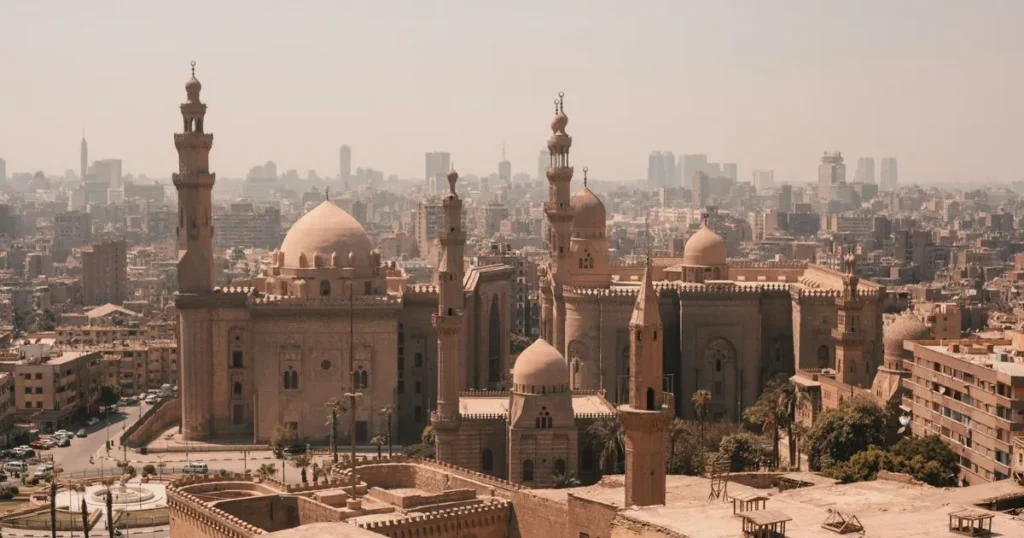
Top Safety Tips for Traveling to Egypt
Ensuring a smooth and enjoyable trip to Egypt involves being well-prepared and aware of certain safety tips. Here are several key points to keep in mind to enhance your experience and stay safe during your travels.
1. Use Reputable Tour Guides and Transportation
When traveling through Egypt, especially in less-traveled or rural areas, it is highly recommended to use reputable tour operators. Not only does this provide access to expert local knowledge, but it also adds an extra layer of security. Booking a Nile cruise or a guided tour of the Pyramids with certified guides will not only enrich your experience but also ensure safety. Always check online reviews and choose certified tour guides who have a good reputation among travelers.
For transportation, it is best to stick with official taxis, ride-sharing services like Uber, or pre-arranged private drivers. Avoid taking random offers from unlicensed drivers, particularly at busy tourist spots. This precaution will help you avoid scams and ensure you’re traveling safely, especially when navigating Egypt’s bustling cities or remote areas.
2. Keep Your Belongings Secure
In Egypt’s vibrant cities and tourist areas, it’s crucial to keep your valuables secure to avoid being targeted by pickpockets. To minimize the risk of theft, it’s recommended to carry only what’s necessary. A crossbody bag is a safer option than a backpack, and wearing a money belt can keep cash and important documents hidden. It’s important to store a copy of your passport and other vital documents in the hotel safe for safekeeping. If you’re using your phone or camera in public, be mindful of your surroundings and avoid drawing attention to your belongings.
3. Respect Local Customs and Blend In
Egypt is predominantly Muslim, with conservative cultural norms that visitors should be mindful of. While you’re not required to fully adopt local attire, dressing modestly will help you blend in and avoid unwanted attention. For women, it’s advisable to cover your shoulders and knees, especially when visiting religious sites or rural areas. Men should also avoid overly casual attire like shorts when in non-resort settings. Dressing respectfully not only demonstrates respect for the local culture but also contributes to a smoother travel experience.
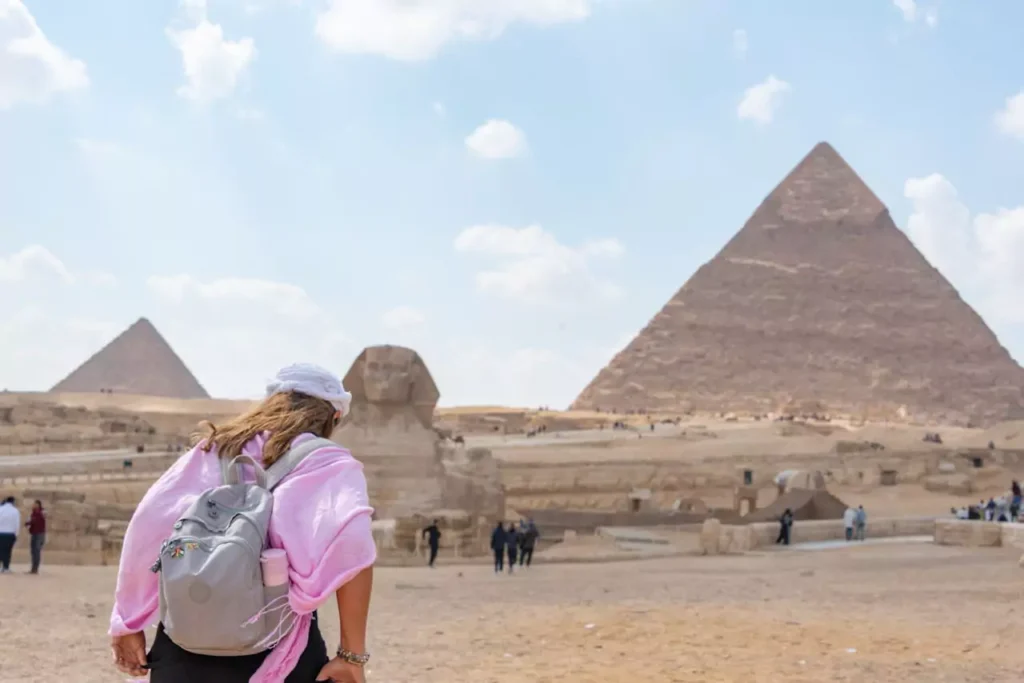
Safety for Female Travelers in Egypt
Traveling solo as a woman in Egypt can be a rewarding experience with the right precautions. Understanding the cultural dynamics is crucial to ensuring your safety and comfort. Women often receive attention, particularly in more traditional areas. While much of this attention is harmless, maintaining a confident demeanor and setting clear boundaries is important. Wearing loose-fitting clothing and carrying a scarf for visits to religious sites (where hair must be covered) can help you navigate Egyptian society more comfortably.
Cultural Considerations for Women
Entering religious sites like mosques often requires women to cover their hair. Carrying a scarf in your day bag ensures you are always prepared. Although the dress code is less strict outside of these areas, adopting a modest approach helps avoid unwanted attention.
Handling Harassment
Street harassment can occur, especially in crowded areas. If you encounter this, it’s best to ignore it and continue walking. If you feel uncomfortable or unsafe, do not hesitate to seek assistance from nearby locals, police, or hotel staff. Egyptians are generally protective of tourists, and reaching out for help is a common practice.
By following these safety tips and being mindful of local customs, travelers can have a memorable and safe experience in Egypt. Whether visiting the bustling streets of Cairo or the ancient sites of Luxor, being prepared ensures that your trip is both enriching and secure.
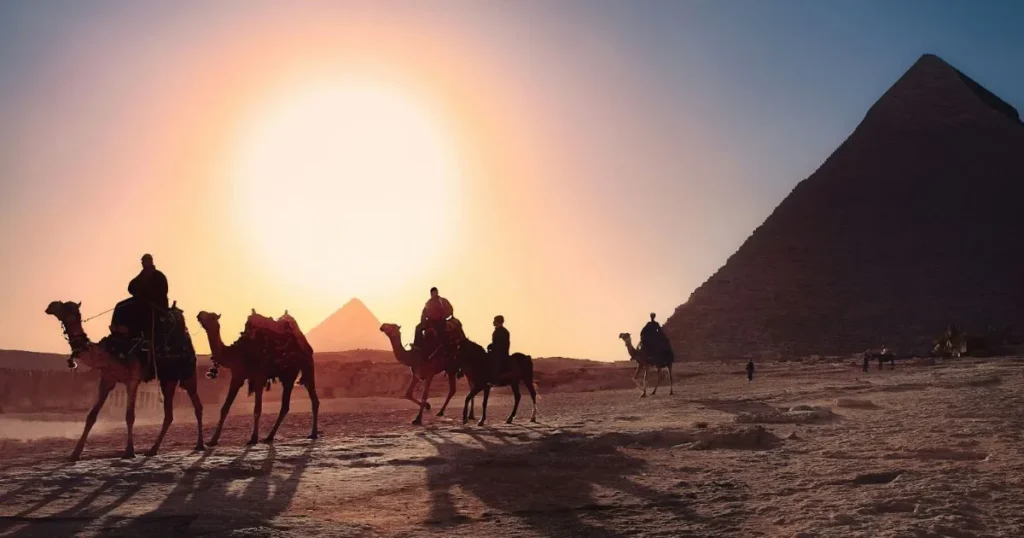
Tourist Hotspots vs. Off-the-Beaten-Path Destinations
Popular Tourist Areas
Egypt’s main tourist destinations are known for their rich history, iconic landmarks, and well-trodden paths. These areas are not only safe but also heavily patrolled, making them ideal for travelers looking to explore the country’s cultural and historical treasures.
Cairo
Cairo, the bustling capital city, is a must-visit for travelers interested in experiencing the vibrant urban life of Egypt. Key attractions such as the Pyramids, the Egyptian Museum, and the bustling Khan El Khalili market are well-protected by police. Although Cairo can feel chaotic due to its sheer size and population density, as long as you remain vigilant and keep your belongings secure, your experience should be enjoyable and safe. The city offers a blend of ancient and modern attractions, from historic mosques to trendy cafes and street food stalls.
Luxor and Aswan
Luxor and Aswan are famous for their ancient temples and tombs, including the Valley of the Kings, Karnak Temple, and the temples of Abu Simbel. These cities are also under heavy police surveillance, particularly around their most famous landmarks. The areas are well-marked for tourists, and guided tours are recommended to ensure a safe and insightful visit. While Luxor can feel crowded due to its popularity, with a good guide, travelers can easily navigate the site and enjoy a peaceful experience. Aswan, known for its relaxed atmosphere and beautiful river views, is a great base for exploring the lesser-known Nubian culture.
Red Sea Resorts
Egypt’s Red Sea resorts, including Sharm El Sheikh, Hurghada, and Marsa Alam, are popular for their stunning coral reefs and crystal-clear waters. These areas are generally considered very safe for tourists, thanks to the presence of well-established resorts, international hotel chains, and organized tour operators. Lifeguards are commonly on duty, and snorkeling excursions are conducted with trained guides. While the Red Sea resorts are known for their vibrant nightlife and water activities, it’s advisable to follow hotel protocols and avoid solo excursions to more isolated areas after dark.
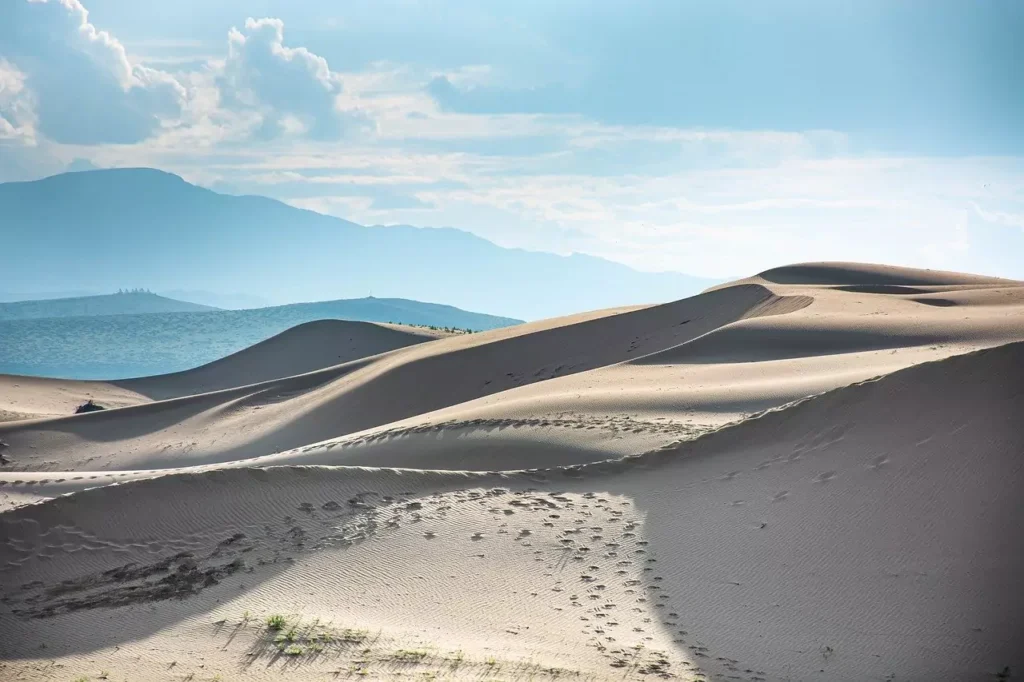
Off-the-Beaten-Path Destinations
For travelers seeking a unique experience and a quieter journey, Egypt offers numerous hidden gems off the usual tourist trail. These destinations provide a more intimate glimpse into the country’s landscapes, culture, and history but may require more preparation and awareness.
The White Desert
The White Desert, located in the western Sahara, is a surreal landscape of chalky rock formations and vast expanses of white sand. This desert region sees fewer visitors, making it an ideal destination for travelers looking to escape the crowds and embrace adventure. While it’s generally safe, it’s crucial to visit with an experienced guide, as the harsh environment and lack of infrastructure can pose challenges. Guides not only ensure safety but also provide insights into the unique geology and history of the area, making the experience richer and more memorable.
Siwa Oasis
Siwa Oasis, located in Egypt’s western desert, is celebrated for its breathtaking natural landscapes, featuring serene salt lakes, historic ruins, and lush palm groves. This off-the-beaten-path destination offers a glimpse into traditional Egyptian life, with mud-brick houses and a strong Bedouin influence. It’s recommended to visit Siwa with a local guide who understands the area’s cultural nuances. Although generally safe, travelers should be cautious of the remoteness and plan accordingly. It’s advisable to hire a driver and prepare for the long journey from Cairo, as well as the specific environmental conditions of the oasis.
The Nile and its Surroundings
Exploring the Nile beyond the main tourist routes provides a glimpse of rural Egypt and a chance to experience daily life in small villages. The less-explored parts of the Nile, such as Dendera and Edfu, offer serene landscapes and opportunities to interact with locals in a more personal way. While these areas are safe, traveling with a guide is recommended to navigate the logistics and ensure a deeper understanding of the history and culture. Traveling in a group or with a pre-arranged tour can enhance safety and provide local insights, particularly when visiting remote temples and tombs.
By striking a balance between popular and off-the-beaten-path destinations, travelers can enjoy a diverse and enriching experience in Egypt, combining the safety and convenience of tourist hotspots with the adventure and authenticity of hidden gems.
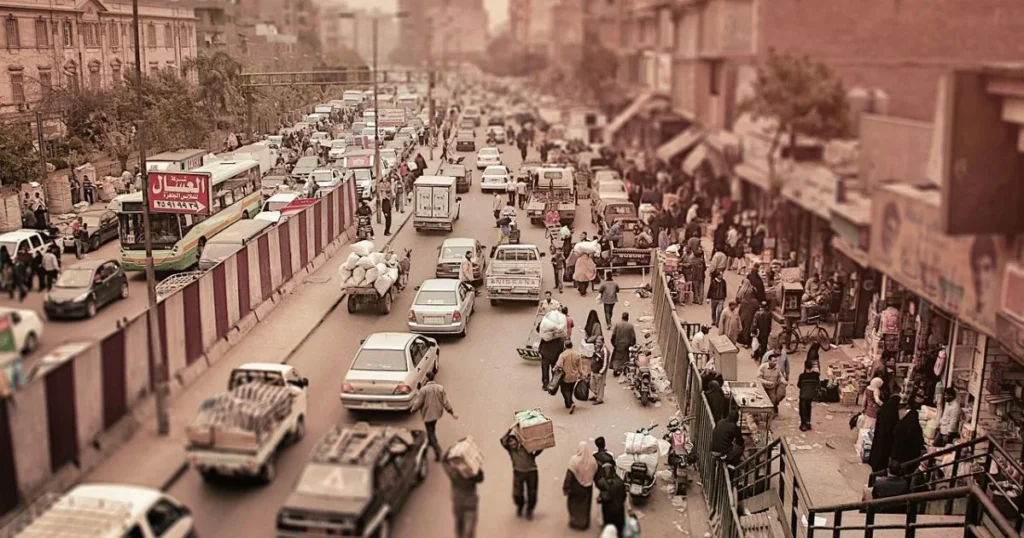
Safety Concerns Related to Transportation in Egypt
Navigating Egypt’s transportation network is relatively straightforward, but it’s important to be aware of certain safety tips to ensure a smooth and secure journey. Here’s what travelers should consider when using different modes of transportation in Egypt.
Using Public Transportation
Public buses, trains, and the metro are cost-effective ways to get around Egypt’s cities. However, they may not always be the most comfortable or secure, particularly for first-time visitors.
- Cairo Metro
- Cairo’s metro system is the safest and most efficient form of public transport in the city. It operates on three lines and is known for its reliability and cleanliness. The metro is heavily patrolled, and it’s recommended to use dedicated women-only cars, especially during peak hours, to avoid unwanted attention and ensure extra security for female travelers.
- Buses and Trains
- Buses and trains are another option for getting around Egypt, but they may not always be the most comfortable, especially on long journeys. Trains, particularly the high-speed and first-class options, are recommended for longer travel between cities. These offer more comfort, space, and often have air conditioning, making them safer and more pleasant for travelers.
- Tips for Public Transport
- When using public transport, keep your belongings secure by keeping bags close to you and avoiding large sums of cash. Familiarize yourself with the routes and schedules, and consider using navigation apps or maps to avoid getting lost. Always choose well-lit and busy stations, especially at night.
Air Travel
Domestic flights in Egypt provide a fast and convenient way for travelers to cover long distances efficiently. EgyptAir is the national carrier and operates flights between major cities such as Cairo, Luxor, Aswan, and the coastal resorts. Air travel in Egypt is considered safe, with stringent regulations in place for passenger security.
- EgyptAir offers a reliable service with a good safety record. The airline adheres to international safety standards, and its fleet is modern and well-maintained. Booking first-class tickets can provide added comfort and may come with extra amenities and better service.
- Booking Tips
- It’s advisable to book tickets directly through EgyptAir’s website or from a reputable travel agency. Check the schedule and flight details before traveling, and arrive at the airport early to allow time for security checks. Keep your ticket and boarding pass secure during your travels.
What to Do in Case of Emergencies
It’s always a good idea to be prepared for emergencies while traveling. Here are the steps to take and important contacts to know in case something goes wrong.
Important Emergency Contacts
- Police: 122
- Ambulance: 123
- Tourist Police: 126
These numbers are essential to have on hand, especially if you find yourself in a situation where you need immediate assistance. It’s useful to memorize these or store them in your phone. - Embassy Assistance
It’s wise to keep the contact information for your country’s embassy handy. The U.S. Embassy in Cairo and the British Embassy are highly responsive and can provide assistance for a range of issues, from lost passports to medical or legal problems. If you run into difficulties, such as losing your passport, having a medical emergency, or needing legal help, your embassy can assist with finding solutions. - Register with Your Embassy
Upon arrival in Egypt, register with your embassy. This process helps the embassy know your location and can assist if a larger crisis occurs. It’s a good practice to keep the embassy’s contact information with you at all times for quick access in case of emergencies.
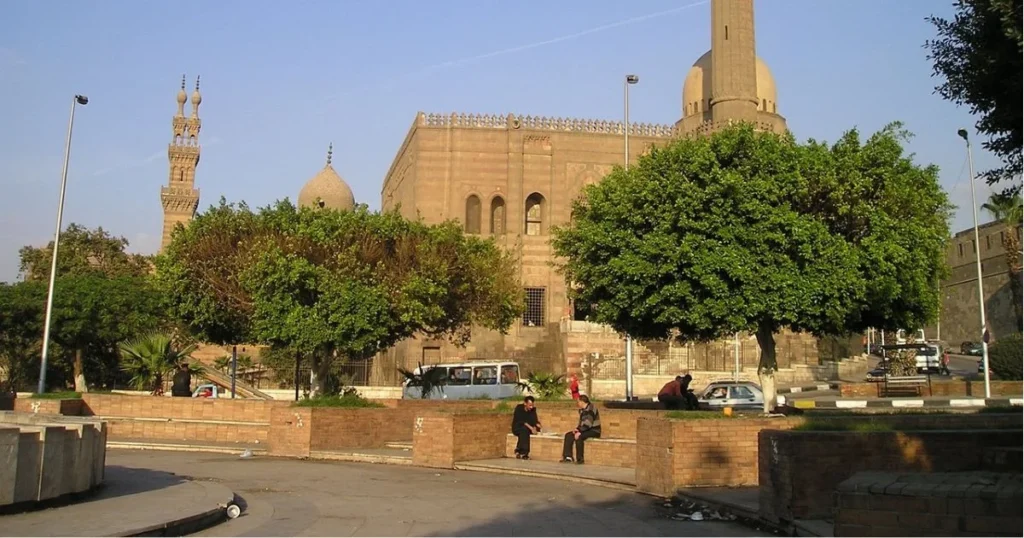
Essential Packing List for a Safe Trip to Egypt
Packing for a trip to Egypt involves considering both comfort and safety, given the country’s climate, culture, and specific travel conditions. Here’s a detailed checklist to ensure you’re fully prepared for your trip.
Health & Safety Items
- First-aid kit:
- Include essentials like band-aids, antiseptic wipes, and medications for common issues such as traveler’s diarrhea, upset stomach, and mild pain relief (e.g., paracetamol or ibuprofen). A few packs of stomach medications like Imodium can be particularly useful.
- Hand sanitizer:
- Public restrooms in Egypt may not always have soap, so carrying your own hand sanitizer is essential for maintaining hygiene throughout your trip.
- Sunscreen and a hat:
- The sun in Egypt can be intense, so it’s important to protect yourself from sunburns. Pack a good quality sunscreen (SPF 30 or higher) and a wide-brimmed hat to shield your face and neck from the heat.
Security Gear
- Money belt or RFID-blocking wallet:
- To keep your cash, credit cards, and passport secure. A money belt worn under your clothing can prevent theft, especially in crowded areas. RFID-blocking wallets are also recommended to protect against electronic theft of your financial information.
- Portable charger:
- Given the extensive amount of exploration you’ll be doing, it’s essential to keep your devices charged. A portable charger will ensure you’re always connected, especially when using maps or translation apps.
FAQs: Is Egypt Safe to Visit?
- Is Egypt safe for solo travelers ?
- Yes, Egypt is generally safe for solo travelers who follow common sense and stay in well-known tourist areas. It’s advisable to avoid isolated areas at night and stick to trusted transportation options to ensure a safe trip.
- What are the most dangerous areas in Egypt for tourists?
- The North Sinai region is the most dangerous due to ongoing conflicts and instability. For a safer experience, stick to tourist-friendly cities like Cairo, Alexandria, Luxor, and the Red Sea resorts, which are well-patrolled and monitored for tourists’ safety.
- Is it safe to visit Egypt with children?
- Absolutely. Egypt is family-friendly, offering a range of activities that kids will enjoy, such as camel rides by the pyramids, exploring ancient temples, or snorkeling in the Red Sea. The key is to take the usual precautions, plan your days around the hot climate, and stay in reputable hotels with good safety standards.
- Do I need travel insurance for Egypt?
- Yes, travel insurance is highly recommended. It provides coverage for unexpected medical costs, trip cancellations, theft, and even emergencies such as lost passports. Having travel insurance gives peace of mind, allowing you to enjoy your trip without worry.
Conclusion: Enjoy Egypt While Staying Safe
Egypt offers an unparalleled travel experience, from its ancient wonders to its vibrant culture. By taking a few sensible precautions and following the tips outlined in this guide, you’ll be able to fully immerse yourself in everything this incredible country has to offer while staying safe. So go ahead, pack your bags, and embark on an unforgettable journey to the land of the Pharaohs.
Ready to explore Egypt? Share your travel plans or questions below, and let’s keep the conversation going!

